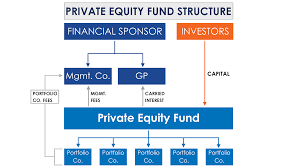Are You Harnessing the Growth and Resilience of Private Capital?
Are You Tapping into Private Capital’s Growth and Resilience?
In recent years, private capital has seen massive growth. Today it ranks among one of the largest and most diverse investment industries

worldwide with $14.5 trillion under management across different strategies such as technology, healthcare, energy and infrastructure investments. Investors in private capital have enjoyed above-average returns despite fluctuations in public markets.
However, the industry is currently facing numerous hurdles that could undermine performance and investor trust. These include: an abrupt reduction in transaction volumes due to inflation fighting efforts of the Fed; higher-for-longer interest rates that drive buyers away; valuation discrepancies in platform investments; and disintermediation of buyout financings from public markets towards private credit markets.
Churchill’s experience indicates that private equity managers with well-balanced, high-quality portfolios can continue to drive deal flow and close deals despite materially reduced M&A activity. Churchill closed or committed over $11 billion during 2023 alone – matching its all time record despite market activity being far below normal levels.
Private capital managers’ relative resilience is partly attributable to their two-to-four year investment horizon, making them adept at finding attractive investments during challenging times. When there’s less capital chasing deals, private equity managers tend to have greater pricing and term setting power.
As many private capital investments can be repaid over multiple years, managers can hold onto investments during periods of market stress; as history shows, private funds have proven more successful in outperforming public markets than their counterparts.
Many private equity managers also possess the flexibility to use non-equity investments like continuing vehicles (CVs) as an asset financing mechanism without changing control, helping sponsors manage concentrated exposures, extend duration of underperforming assets or wind down tail-end positions more easily.
These factors demonstrate that, while private capital may present challenges in the short term, its lasting appeal lies in its consistent long-term returns and portfolio diversification. By adhering to fundamentals, maintaining a well-diversified portfolio and taking advantage of next generation technology/financing platforms for deal sourcing/due diligence purposes, investors can help ensure the private capital industry will prosper during its next stage in this cycle.








